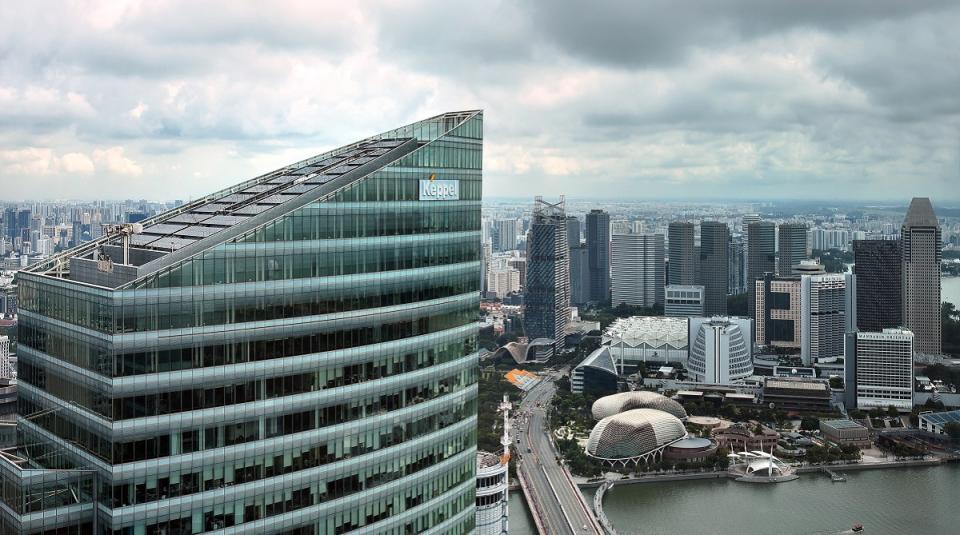DBS lowers STI target to 3,450; looks towards turnaround in 2H2023

Analysts Yeo Kee Yan and Foo Fang Boon have turned “neutral” on Singapore from their earlier “positive” rating.
DBS Group Research has lowered its Straits Times Index (STI) year-end target to 3,450 points, down from 3,600 points previously, as it turns “neutral” on Singapore from its earlier rating of “positive”.
In the DBS Regional Market Strategy 2H2023 Outlook, analysts Yeo Kee Yan and Foo Fang Boon say that their new target of 3,450 for the STI points to a better second half of the year for equities, considering the benchmark’s flat 1H2023 performance, and represents an upside of some 8.1%.
Last month, DBS reduced its Singapore GDP growth forecast to 1.7% from its earlier estimates of 2.2% amid uncertainty over the manufacturing sector’s recovery prospects and a “normalising” services sector recovery.
“In spite of this, we do not see much downside from here for the STI as Singapore is a safe haven in a global slowdown environment and its valuation is attractive,” say the analysts, noting that the STI has held up well year-to-date (ytd) relative to regional markets under their coverage.
According to them, optimism for a meaningful turnaround in manufacturing and trade-related sectors this year has been pushed back to 2H2023 with global headwinds such as the slowdown in advanced economies and a bumpy Chinese recovery weighing on the externally-dependent sectors in Singapore.
Despite the ongoing inventory destocking in the global semiconductor market, they believe that “green shoots” have started to appear as expectations of an artificial intelligence (AI) -fuelled recovery and improved forward electronics manufacturing expectation are turning positive in Singapore.
Other themes that Yeo and Foo have identified as potential catalysts for the Singapore market include elevated oil prices during the ongoing renewable energy transition, as well as the US Federal Reserve’s (Fed) pause on interest rate hikes.
Considering these upside risks, the analysts’ top picks are Keppel Corporation Bn4 and Yangzijiang Shipbuilding BS6 — winners of the energy transition and firm oil prices — and ST Engineering S63 and UMS Holdings 558 — beneficiaries of the Fed’s rate pause.
Tailwinds for oil and gas and renewable-related plays in Singapore include recent plans by global oil majors, such as Shell, BP and Total, to maintain their oil output while growing their renewable energy businesses, and bodes well for both conventional and renewable energy segments. Renewable contract wins ytd also point to the growing traction towards clean energy transition here in Singapore, they add.
For triple-A MSCI ESG rated Keppel, which is on track to meet its 2030 sustainable urbanisation strategy target, Yeo and Foo believe that its core earnings growth of 12% compound annual growth rate (CAGR) in the next two years will be driven largely by assets under management (AUM) growth from $50 billion as of end-2022 towards $80 billion, and eventually on to $200 billion by 2030.
According to them, this should underpin improvements to Keppel’s earnings visibility, which stands at around 60% recurring income contribution to group profit, and its return on equity (ROE), from 9% in 2022 to its 15% target.
Meanwhile, higher-value green vessels which form around 40% of Yangzijiang’s order book should support its revenue and earnings visibility. The analysts note that Yangzijiang’s yards are full through 2025 with an orderbook of over US$10 billion ($13.5 billion).
“This is expected to propel an earnings CAGR of 20% in the next three years, driven by both revenue growth and margin expansion, as 80% of its orderbook is made up of containership orders that command higher value and margins,” they explain, adding that they expect to see a further uplift in Yangzijiang’s order book from orders of large liquified natural gas (LNG) carriers.
Amongst rate-sensitive stocks, Yeo and Foo say they are continuing to “seek opportunities” as rates stay higher for longer. The Fed’s pause could pave the way for a strong 2H2023 as it creates a “favourable sectoral backdrop” for the resilient tourism-related sector and a recovering electronics sector.
The analysts say that a sustained recovery in ST Engineering’s commercial aerospace segment and TransCore contribution should underpin their forecast for double-digit CAGR earnings growth from FY2022 to FY2024.
They add that this performance was enhanced by substantial new contract wins of $4.9 billion, which brought its order book to a “new record high” of $25.4 billion with an implied book-to-bill ratio of 2.8x. Meanwhile, ST Engineering’s low cost of debt at 3% in FY2023 will also be a positive factor for DBS’ top pick in the aviation space.
Finally, the DBS analysts see UMS as a beneficiary of an AI-fuelled recovery as well as the trend towards trade diversification. They remain hopeful of a stronger 2H2023 compared to a weak second quarter of the year, followed by a recovery in 2024.
They note that UMS’ key customer Applied Materials remains above consensus guidance as another potential AI-beneficiary on higher demand for equipment that produces advanced chips. UMS will also benefit from its new customer diversification strategy and trade diversification through its new Penang plant, say Yeo and Foo.
As at 11.36am, shares in Keppel, Yangzijiang, ST Engineering and UMS were trading at $6.50, $1.46, $3.65 and $1.06, respectively.
See Also:
Click here to stay updated with the Latest Business & Investment News in Singapore
Brokers' digest: Aztech Global, Dyna-Mac, ComfortDelGro, HRnetGroup, StarHub
UOB Kay Hian raises Yangzijiang target price to $1.65, nudges change to dividend policy
Get in-depth insights from our expert contributors, and dive into financial and economic trends

 Yahoo Finance
Yahoo Finance 